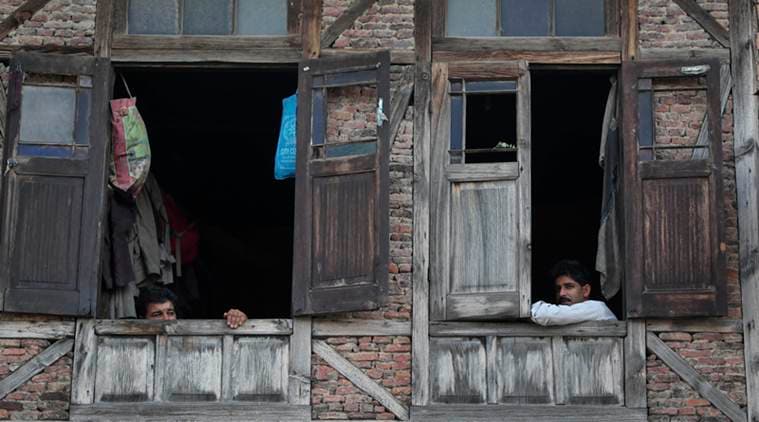
While Dawn this week has brought into focus a variety of issues beyond Kashmir — from Pakistan’s political scenario to the economy and climate change challenges — The Express Tribune has maintained a somewhat jingoistic stance. Some of its contributors have invoked Nazi Germany in polemical attacks on India, while others have called for a muscular, military response to the change in Jammu and Kashmir’s status.
Dr Moonis Ahmar, in his column in The Express Tribune on August 30, has taken an alarmist position on “India’s ethnic cleansing” in Kashmir. After talking of rape, murder and other heinous crimes to make a polemical point, Ahmar “warns” India on not learning the lessons of history: “The Indian state has failed to learn lessons from the policy of genocide and ethnic cleansing which was pursued in the past by militaries in different parts of the world. India must understand the lesson of the history that despite its 800,000-strong armed force, it will not be able to crush the nine million Kashmiri Muslims who are facing the worst humanitarian crisis in the form of curfews, communication lockdown and shortage of essential commodities, including medicines.”
For Ahmar, the Indian policy has three aspects. First, “to humiliate and degrade Kashmiri Muslims”. To substantiate this point, he uses as fodder the ill-informed statements by leaders of the BJP and Sangh Parivar claiming that Indian men can marry Kashmiri women, assault them, etc. Second, he acknowledges that there are people in India who are standing up against the government’s moves in Kashmir and as such, the jailing of leaders in Kashmir, stifling of dissent within the Indian heartland is an extension of the government’s ideological position. Third, Ahmar calls for Pakistan to intervene: “in a situation when the Kashmiri Muslims under the Indian occupation are facing the worst kind of human rights’ violations, it is high time for Pakistan to practically support them.”
The editorial in The Express Tribune on August 31 expresses its admiration for the Pakistanis who showed up on the streets in “solidarity” with the people of Kashmir: “Tens of thousands of Pakistanis yesterday poured onto the streets in almost all big and small cities and towns of the country in a government-led demonstration of solidarity with the Kashmiris who have refused to accept New Delhi’s illegal annexation of their abode on August 5.”
The editorial asks citizens of Pakistan “to keep the Kashmir issue burning”.
The implication to be drawn from both the article and editorial is obvious. Kashmir is becoming a way to whip up nationalists sentiments in Pakistan, too.
Island’s dilemma
Jayanath Colombage, a former Navy chief of Sri Lanka and strategic analyst has an article in The Daily Mirror taking off from a seminar on the Indian Ocean littoral and its strategic, environmental and economic potential.
He cites the speeches from analysts across the region.
According to Colombage, Sri Lanka can “shape the Indian Ocean environment”. But the strategic dilemma comes from being a small economy which can only leverage its strategic position and geography to meet its development goals: “World Bank Group released a report in 2018 stating that 50% of world infrastructure needs are in Asia. The same report indicated that Asia needs USD 460 Billion from 2016-2030 to develop infrastructure.Where can this many come from? Can it be from traditional donors, self-financing, own banks or multi-lateral lending? The answer is no. It has to be FDI. But it is not coming. FDI to Sri Lanka is 1.2% of GDP in 2018… We are unable to make decisions based on economics.We have or we are compelled to undertake strategic balancing.”
For India, which is in competition with China in Sri Lanka as well as vying to be a power in Indian Ocean, the concerns of its island neighbour are worth paying attention to.
Arundhati’s mistake
The August 28 editorial in The Dhaka Tribune attacks Arundhati Roy for defending Pakistan with falsehoods. However, the editorial made an error (which it later corrected): The statement it said was “recent” was actually made by Roy in 2011. Nonetheless, her defence of Pakistan has many in Bangladesh upset. The editorial reads: “The Indian author said:“The State of Pakistan has not deployed the army against its own people in the way that the democratic Indian state has.” We cannot agree with this statement, which at best is incorrect and at worst looks like an attempt to whitewash the sins of the Pakistan army.”
The editorial further responds: “To this day, Pakistan refuses to acknowledge the atrocities committed against our people in 1971 — crimes which included murder, torture, rape, and looting. That is why it is all the more inexcusable that a writer and activist of the stature and reputation of Arundhati Roy would make a blatantly false statement that aligns perfectly with Pakistan’s own denials of its crimes.”
The editorial has asked that Roy not diminish the Bangladesh freedom struggle.
A weekly look at the public conversations shaping ideas beyond borders — in the Subcontinent. Curated by Aakash Joshi